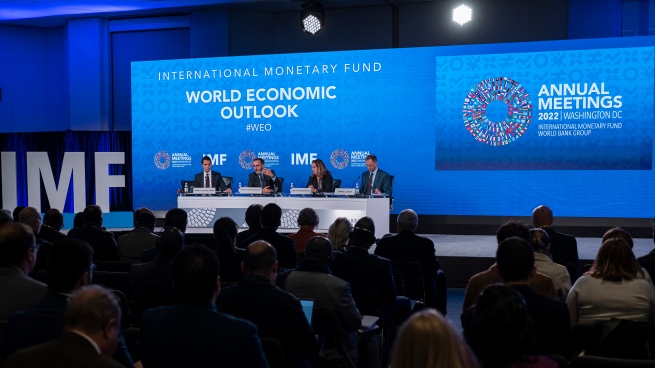The International Monetary Fund (IMF) on Tuesday maintained the economic projections for Argentina and estimated that it will grow 4% in 2022 and 2% in 2023, in a context of overall slowdown.
The data was released on Tuesday. during the official presentation of the World Economic Outlook, (WEO), within the framework of the Annual Assembly of the IMF and the World Bank.
The WEO projects a growth for the country of 4% by 2022similar to the Fund’s latest projections made last July.
It also forecasts that the Argentine economy will face an inflation of 95% by 2022 and 60% by 2023, in line with the Government’s projections stipulated in the draft Budget 2023and within the agreement that our country maintains with the IMF
Growth data is known one day before the visit of the Minister of Economy, Sergio Massa, to Washington for Participate in the Annual Assembly of the IMF and the World Bankand after the recent approval of the second revision of the program that Argentina maintains with the IMF and that triggered US$ 3,800 million that went to pocket the national reserves.
The global economic outlook, with a negative outlook
“The global economy is experiencing a series of turbulent challenges. Higher inflation than seen in several decades, tightening financial conditions in most regions, the Russian invasion of Ukraine and the ongoing Covid-19 pandemic weigh heavily on the outlook,” the report summarizes.
Consequently, “Global growth is projected to slow from 6% in 2021 to 3.2% in 2022 and 2.7% in 2023”in tune with the last update of last July.
higher inflation. Slower growth. Stricter financial conditions. High debt burden.
How do we get back on track to reduce poverty and drive inclusive economic growth?
Join our high-level debate tomorrow.— World Bank (@WorldBank) October 10, 2022
For the IMF, “this is the weakest growth profile since 2001, except for the global financial crisis and the acute phase of the Covid-19 pandemic, and reflects a significant slowdown for the largest economies: a GDP contraction of United States in the first half of 2022, a contraction of the euro zone in the second half of 2022 and prolonged outbreaks and lockdowns of Covid-19 in China with a growing crisis in the real estate sector,” he said of the Global economy.
At least a third of the world economy “faces two consecutive quarters of negative growth”, and global inflation is projected to rise from 4.7% in 2021 to 8.8% in 2022, but decline to 6.5% in 2023 and 4.1% in 2024., among the report highlights that presented on Tuesday morning by Pierre-Olivier Gourinchas, the Economic Counselor and Director of the Research Department of the IMF; Petya Koeva Brooks, Deputy Director of the Research Department and Daniel Leigh, Division Chief of the Agency’s Research Department.


















